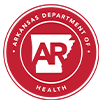
May 2024—Little Rock, Arkansas
The rapid growth in data sharing presents new opportunities across the spectrum. The UAMS IDHI Brain Injury Program vision is to enable every Arkansan who has sustained a disabling traumatic injury access to the comprehensive rehabilitation care he or she needs. Established in 2013, the state registry of traumatic brain injury survivors’ documents 1,500+ moderate-to-severe TBI survivors. That is why the partnership with SHARE (State Health Alliance for Records Exchange), the statewide health information exchange makes sense in tracking emergency department (ED) and inpatient discharges in real-time. Multiple treatment points along the healthcare continuum present challenges to many persons living with a TBI. The need to monitor patient visits to EDs and other clinical sites is critical with the growing emphasis on value-based care. Effective patient management demands improved communication and coordination among care team members, so patients are treated appropriately.

Traumatic brain injury (TBI) is one of the most prevalent and severely disabling neurological disorders in the US. Nationwide, 1.7 million people experience TBI each year of which 3 to 5 million live with a TBI-related disability. Patients and the families of those who suffer from TBI live with psychological consequences of TBI that have hidden costs such as the inability to hold down work, disinhibited (often aggressive or easily agitated) behavior, and altered mood states. TBI has a higher incidence among vulnerable populations and many of these people enter a downward spiral of head injury associated with altered behavior, alcohol, and further head injuries. Therefore, long-term care is crucial in the management of TBI.
SHARE real-time hospitalization reports serve as an immediate source for patient information. The UAMS IDHI Brain Injury Program receives alerts whenever their patients are admitted to or discharged from a hospital and other facilities. These notifications help fulfill the triple aim of improved care, patient satisfaction, and reduced costs.
Sample (No Real Patient Data) SHARE Hospitalization Report

“SHARE has been very helpful in identifying patients who are having clusters of medical problems. Alerts are also helping us better understand the needs of the TBI community and to recommend solutions for policy makers,” stated Daniel Bercher, Ph.D., NRP, CBIS, Director of Operations, UAMS IDHI. “With alerts conveniently accessible, our team can contact patients or caregivers of the individual and determine the right intervention at the right time. Sometimes, hospital admissions cannot be avoided, but with SHARE hospitalization alerts allow us to follow up with the TBI patient to provide them with the best care to keep them healthy and enjoying life.” stated Dr. Bercher.
 About the UAMS IDHI Brain Injury Program:
About the UAMS IDHI Brain Injury Program:
The UAMS Brain Injury Program is part of the Institute for Digital Health & Innovation. They are the lead program for brain injury in Arkansas and their services are free. What they offer:
- Case management
- Telemedicine
- Community resources
- Support groups
- Online workshops
- Recovery groups
- A free quarterly newsletter
- Education for professionals
- 24/7 nurse hotline for medical questions and physician consults (1-855-767-6983).
Learn more: https://idhi.uams.edu/brain-injury-program


